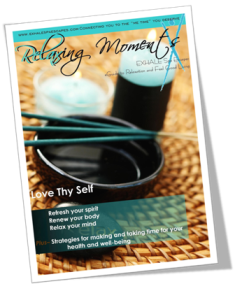Jane, a working mother, often feels tense. She feels she has too much to do. At the end of the day, she is drained and frazzled. She feels as if she is being pulled from all sides. Consequently, she cannot meet the demands of her job or her family. She gets irritated over insignificant things and has intense emotional outbursts. Lately, she cannot sleep at night, does not feel hungry, and feels exhausted all the time. Jane is under stress.
Many people who are under stress do not know what the effects of stress are and how it feels. The following are some key stress indicators:
– Irritability and nervousness
– Sleep disturbances
– Poor concentration and low memory retention
– Anger and tantrums
– Anti social behavior, sometimes bordering on the violent
– Alcohol or drug abuse
– Emotional outbursts
Constant stress will trigger physical ailments. When a person is stressed, the body responds by increasing the heart rate. The blood pressure rises because of a need to pump more blood into the brain. Blood is drained from the intestines and shunted to the arms and the legs (protection and attack instinct). Blood clotting takes place more quickly (body’s protective instinct).
While stress is present everywhere these days, about 10% of the population suffers from chronic stress. If left untreated, this can cause extensive damage to a person’s physical as well as mental well-being.
Stress CAN be relieved. There ARE ways in which one can drain out this poisonous matter from the body.
Methods to relieve stress:
Do it willfully and enjoy the satisfaction. Multitasking is all very well, but it’s more for computers than man. Pay attention to the task at hand. Finish it and then go on to the next task.
Plan your day. Keep a timetable. If you are a working mom, there are deadlines to be met, brownie meets, and coaching sessions; not to mention cooking, cleaning and washing. Yes, that’s a lot of things to do. So, split the load. Fix a time for a task and pat yourself on the back when you finish each task.
Don’t rush through your meals, no matter how important that meeting is. Take the time to quiet your mind and relax when you do this all-important activity. Find pleasure in eating.
Keep your thoughts positive, ALWAYS. Focus on the good side of things. Meditation, Yoga, or Tai Chi will greatly help to calm your troubled mind. During the day, notice your body. If you notice tension in your body, release it. Breathe deep and stretch any of the tense areas.
Get some exercise. Jog, run, play, swim – just release those cramped muscles and let your heart beat faster and stronger.
You are only as good as the things you put in you body. Avoid sugary foods, fast food and fried stuff. Take in a lot of fiber and complex carbs. Plenty of fresh fruits and vegetables make you feel good.
Remember that proverb,” All work and no play makes Jack a dull boy?” Find some things that you enjoy and make time for them. Read that book; go for a walk; or listen to music. The important thing is to find some time for you.
Lastly, be gentle with yourself. It is natural to fall back into stressful habits from time to time. If you do, simply notice this change and don’t get judgmental. Move back to the stress reduction techniques.


